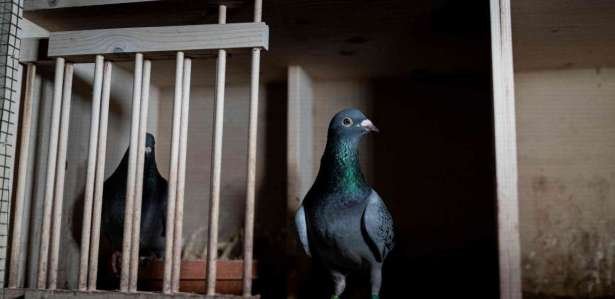
British Prime Minister Liz Truss said yesterday that she has lost the confidence of her party and is expected to step down next week. Giving a speech outside the Downing Street residence, Liz Truss has become the shortest serving prime minister in British history.

Liz Truss resigned after only 44 days in the job
Yesterday, she said she was resigning, her economic platform that shook the markets toppled her and the Conservative Party split just six weeks after her appointment. Yesterday, the Prime Minister said she is a “fighter, not a contestant”. However, she realized that she could no longer deliver on the promises that had won her the Tory leadership.
“I have therefore spoken to His Majesty the King to inform him that I am resigning from the leadership of the Conservative Party,” said Truss, who was accompanied only by her husband, without the presence of aides and ministers. The elections for the new leadership will end on the 28th. They are expected to stand as former Finance Minister Rishi Sunak and former Defense Minister Penny Mordaunt.
Jeremy Hunt, the man tasked with returning public funds, has ruled out running.
Party members and Conservative MPs must have a say in the selection. A poll earlier this week showed that a majority of members wanted former Prime Minister Boris Johnson, who resigned in July, back. The UK is not expected to hold national elections for another two years.
Appointed on September 6, Truss was forced to sack her finance minister and closest political ally Kwasi Kwarting and abandon her economic program almost entirely after her plans for massive unfunded tax cuts sent the pound and British bonds crashing. Approval ratings for her and the Conservative Party plummeted.
Yesterday, she lost the government’s second-most senior four ministers, faced laughter as she tried to defend her record in Parliament and saw lawmakers openly sparring over politics, deepening the sense of chaos in Westminster.
The new chancellor, Jeremy Hunt, is now looking to cut billions of pounds in spending to try to reassure investors and rebuild the UK’s financial reputation. The economy enters a recession and inflation reaches a 40-year high.
Hunt is due to present a new budget on October 31. The new prime minister will be chosen on the twenty-eighth of this month.
The fight to succeed Truss has already begun within the Conservative Party, which is expected to choose a replacement in the coming days. Even former Prime Minister Boris Johnson is expected to stand for the leadership of the Conservative Party, The Times of London reports. “He does the polls but thinks this is a matter of national interest,” Stephen Swynford, political editor of The Times, said on Twitter.
The pressure on the prime minister came to a head on Wednesday, the 19th, when Truss came under fire from allies – as well as opponents of the Labor Party – during a trip to the House of Commons. The discontent of a part of his group almost turned into a partisan revolt during the vote on shale gas exploration, and although the government’s proposal won, the tension with the party itself was evident.
After six weeks into her career, Truss experienced a sharp decline in popularity. A failed economic recovery plan that caused a social and political crisis led to the ouster of Finance Minister Kwasi Kwarting. On Wednesday, in a sign of a lack of discipline in the party, more than a dozen Conservative MPs called for Truss’ resignation – which also saw the home secretary, Soella Braverman, step down from government.
Resignation raises the race for party leadership
The resignation of Liz Truss as British Prime Minister on Thursday sparked another leadership race – the second in just four months – for Britain’s fractured and frustrated Conservative Party.
Truss, who announced his departure after only 45 days, said his successor will be chosen in a leadership election that will conclude by the end of next week. Graham Brady, the senior Conservative MP who oversees the process in the party, said each candidate must receive 100 nominations from lawmakers to stand and that the race ends next Friday.
Among the candidates seen as having credibility for the post are former Chief Treasury Rishi Sunak, former Cabinet Secretary Penny Mordaunt and Defense Secretary Ben Wallace. Sunak resigned as head of the Treasury in July in protest of the leadership of then-Prime Minister Boris Johnson. In the race to succeed Johnson, Sunak has positioned himself as the candidate who tells the hard truths about UK public finances. He argued that rising inflation must be brought under control first, and called pledges by Truss and other competitors to promptly unwise tax cuts “fairy tales”. Sunak became chief of the treasury in 2020 and led the country’s flagging economy during the coronavirus pandemic. He was considered by many to be the Conservatives’ brightest rising star. However, last year it faced heavy criticism for the slow response to the cost-of-living crisis. His reputation also suffered after he was fined by the police for attending a Downing Street birthday party in June 2020.
Mordaunt, a former foreign trade secretary, is popular with Conservative lawmakers. Some believe she could be the right candidate to help heal divisions in the party. But she is an unknown figure to most Britons, and outside conservative circles, despite playing a prominent role in the pro-Brexit campaign.

“Lifelong web fan. Incurable internet junkie. Avid bacon guru. Social media geek. Reader. Freelance food scholar.”





